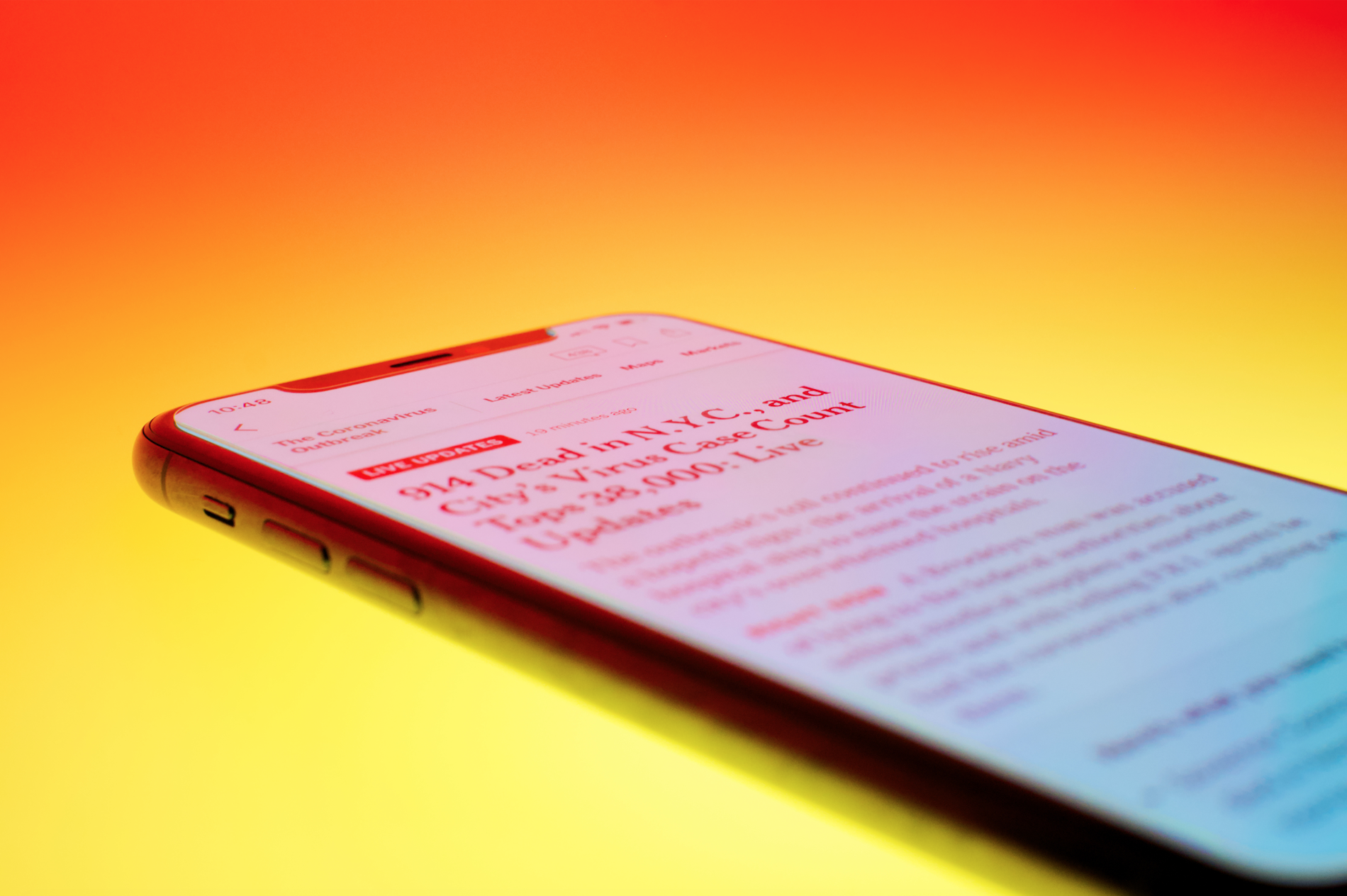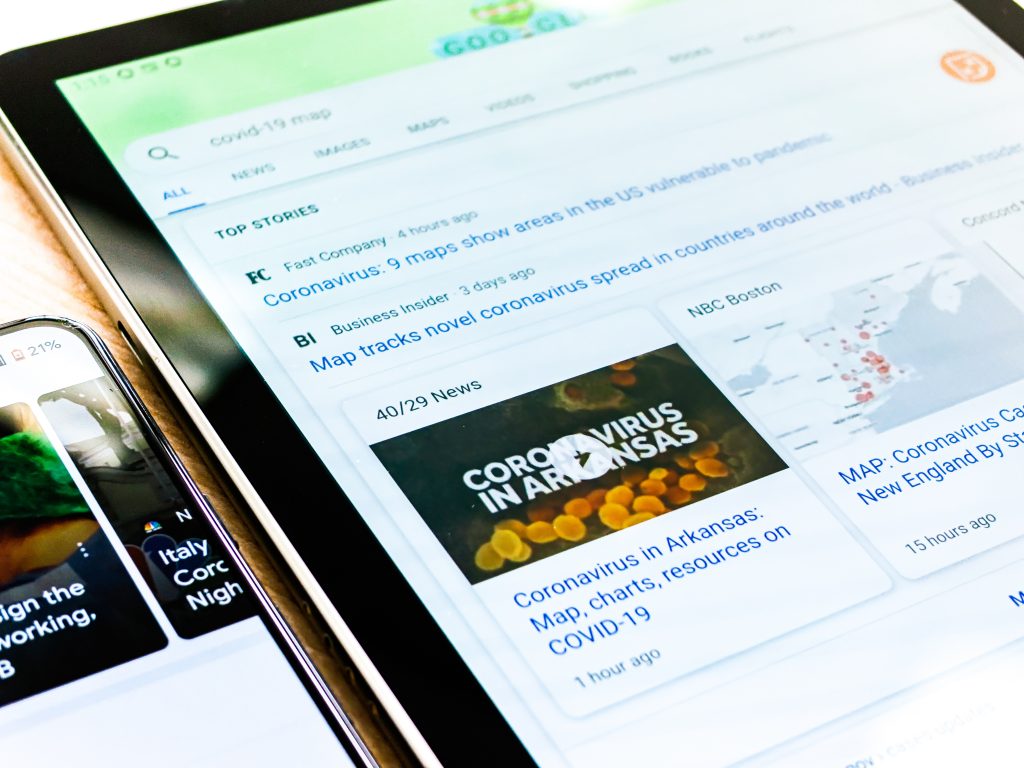
09 Nov Avoiding Bad News Online: 5 Top Tips
“Nothing travels faster than the speed of light, with the possible exception of bad news”.
Since Douglas Adams wrote this over 40 years ago, bad news has just continued to travel even faster thanks to globalisation and the rise of modern mass media. The invention of the world wide web birthed real-time news reporting, and in turn the invention of social media has given this a platform and emphasis like never before. Bad news in the public sphere is travelling faster than ever.
Expressions similar to ‘bad news travels fast’ have been around since the 1500s. It is a truth that is key to our survival as the human race. Our brains are more highly attuned to bad news because this is what is going to have an impact on our survival. Bad past experiences and upcoming threats are both far further towards the front of our brain than positive news and experiences. We need them to be.
Therefore, our eagerness to share bad news so rapidly is no new or surprising pattern of human behaviour. It is just that technological advances in our civilisation have enabled extremely rapid sharing.
And this is not healthy for us. Excessive exposure to news can cause an information overload; where we are given so much information that it negatively affects our ability to digest and form rational opinions on the subject matter. We are left feeling anxious and stressed, whilst also powerless.
That isn’t to say that we should cut reading the news entirely out of our lives. On the contrary, to do this would be harmful in most cases. Having no political or social awareness is dangerous; plus, it could isolate and leave us feeling detached from the world, and those around us.
However, whilst reading the news is certainly beneficial, we should be able to set limits on the quantity of content we are exposed to, and spend time away from it. Being online makes this very difficult. Media sites competing to be the first to drop a story, or give new information, means that the world of reporting never sleeps, and our timelines are flooded with snippets of information, infographics and linked articles.
There is also a part of us that is fascinated by bad news, and despite the negative effect it has on our mood, we can become addicted to it. There is a danger of being sucked into bleak story after story, and losing chunks our day to what’s been dubbed doomscrolling.

How can we establish a healthy and balanced news intake?
#1 Set time away from your phone
If there is a really important story breaking, you will likely hear about it from a friend. Training yourself to be without your phone will, over time, reduce the anxiety you may feel from not checking the news regularly. A digital detox could be the way to really learn to live without your phone.
Of course, we also want to spend time enjoying ourselves online, talking to friends or interacting with them on social media. But how can we ensure that this personal time is not invaded by bad news?
#2 Unfollow news pages on social media
This gives you control over when you see news, and means you aren’t bombarded by it all the time that you are online. You can still use them as a news source by searching for them, and support them by liking their posts. Alternatively, you can hide their posts from your timeline/feed.
#3 Disable news app notifications
It can be handy to have a news app on your phone, but not if it is invading your thoughts and time. You should also be wary of an algorithmic news feed. This is where an algorithm determines what stories you are shown, based on your previous views and other data on you and your habits. This means that you may not have a balanced news feed, or perhaps will only be shown the stories that are most likely to be clicked on, which are often bad news.
#4 Set time limits
Set a certain time for you to browse and read news stories, and stick to it. It is so tempting to constantly be checking in on and refreshing news pages throughout the day, but doing so is harmful for your productivity and headspace.
Take control and decide when you are going to interact with news. Therefore, if there are stories that you find upsetting, worrying or triggering, you know that you will be in the best possible frame of mind to receive them.
#5 Actively avoid breaking news
Usually, it is better to read stories a few hours after they have broken. By then, the reporting will be better informed, and likely fact-checked, a stark contrast with the often frantic and borderline sensationalist manner breaking stories are reported. Reading them later in in the news cycle will allow you to get a fuller picture of the story, which may be a less-anxiety inducing experience.





Sorry, the comment form is closed at this time.